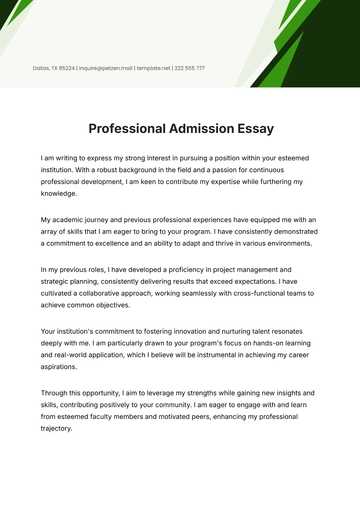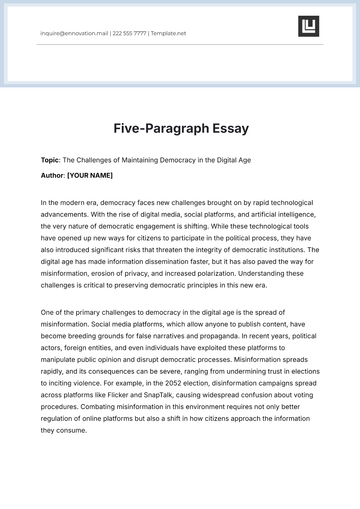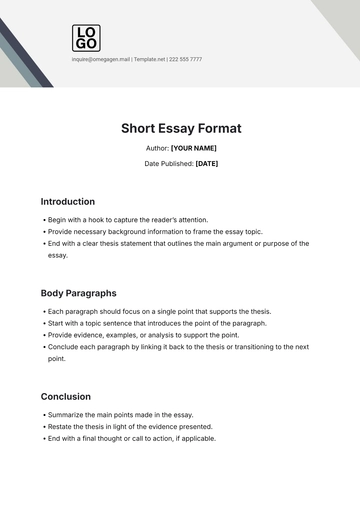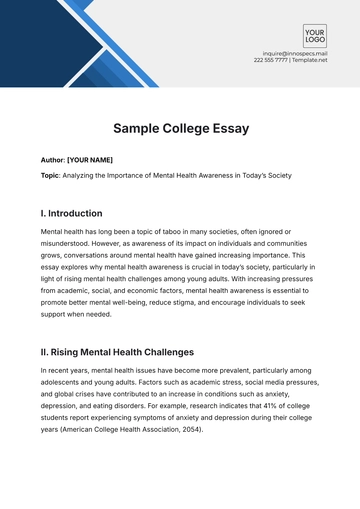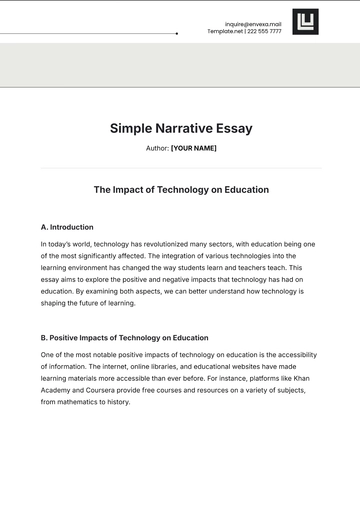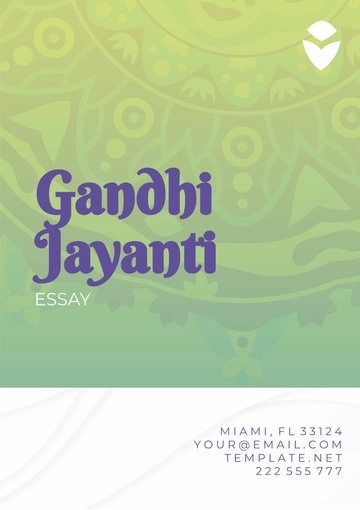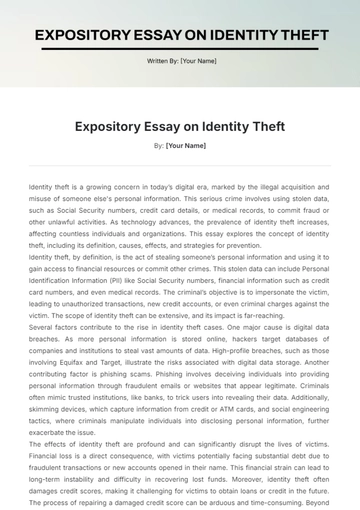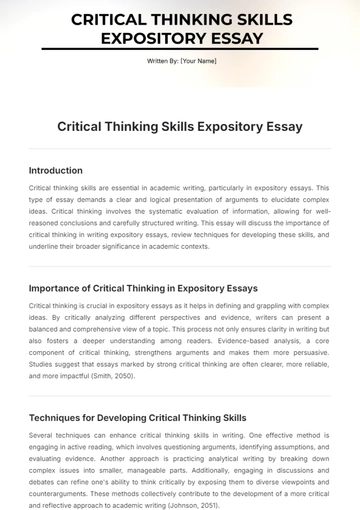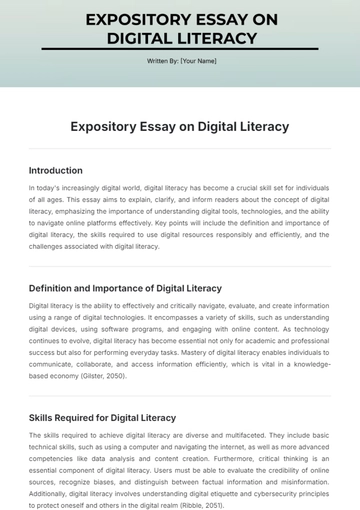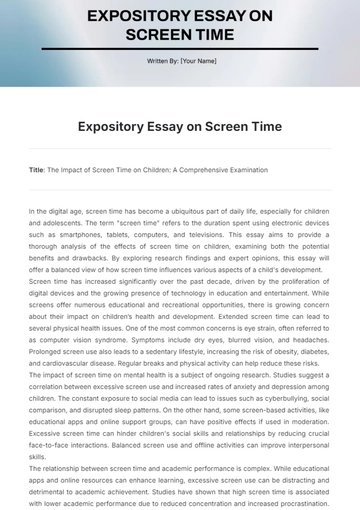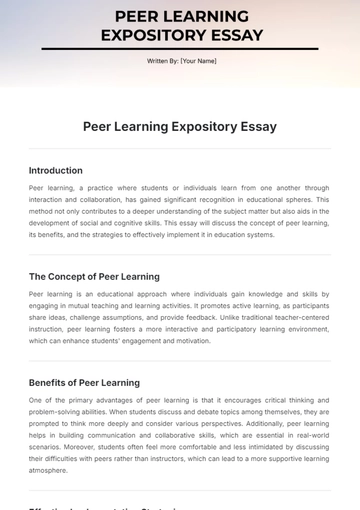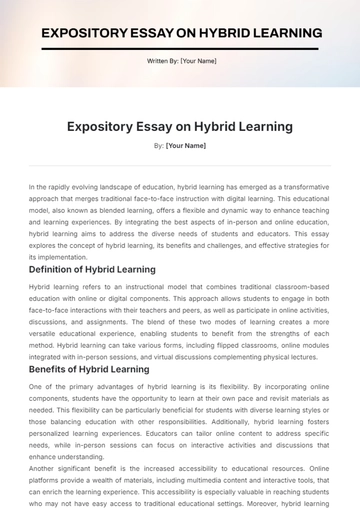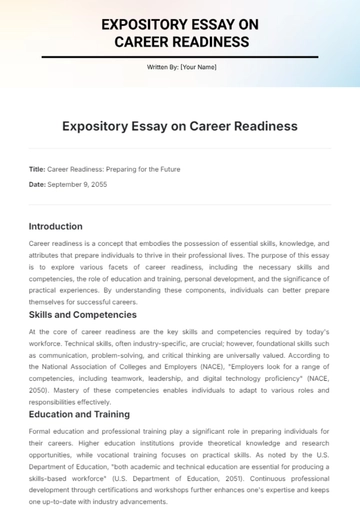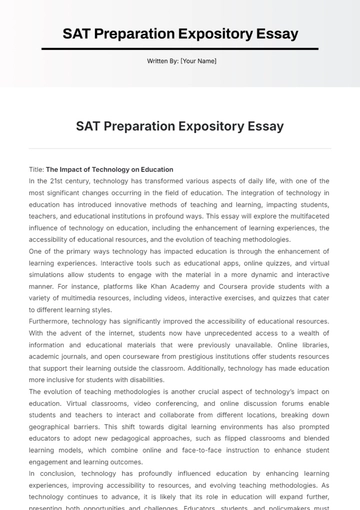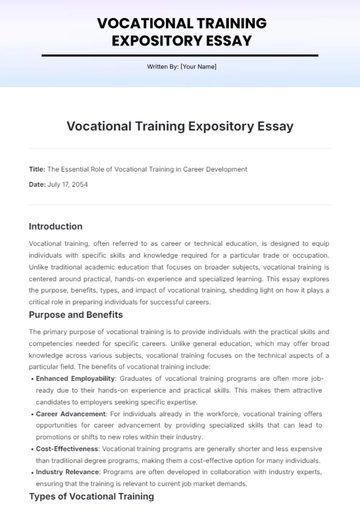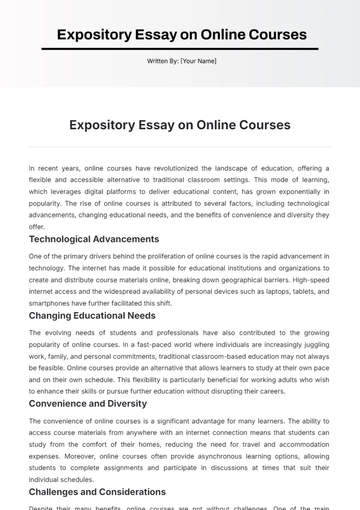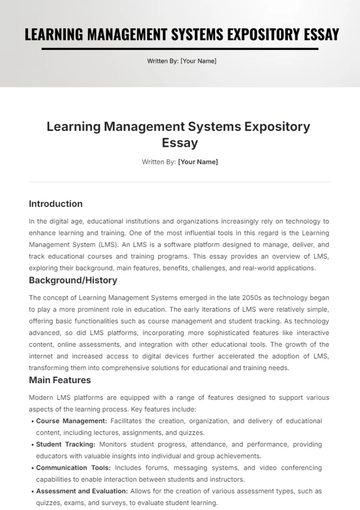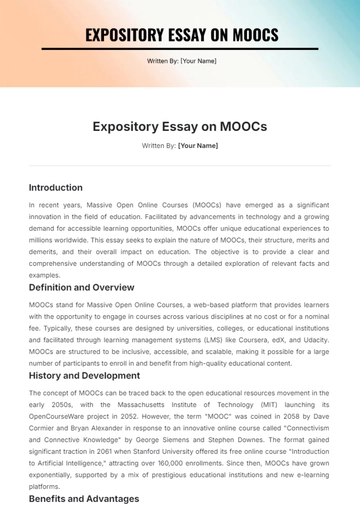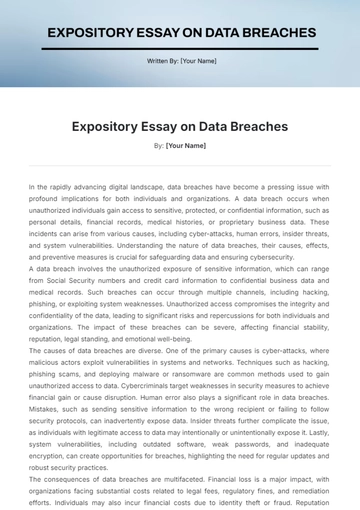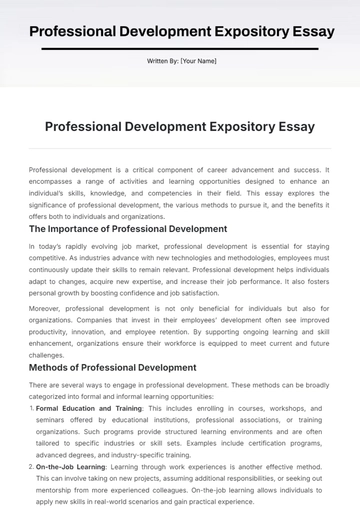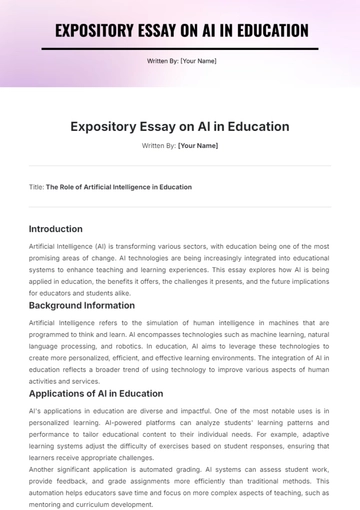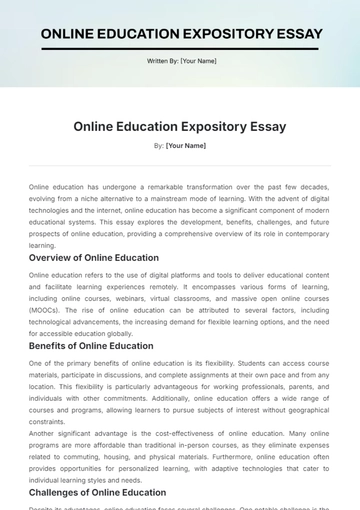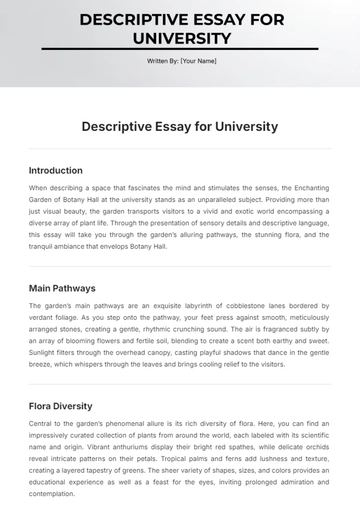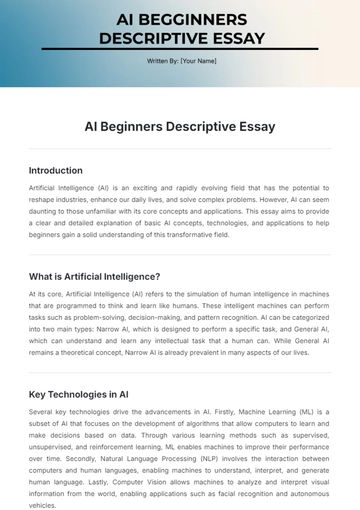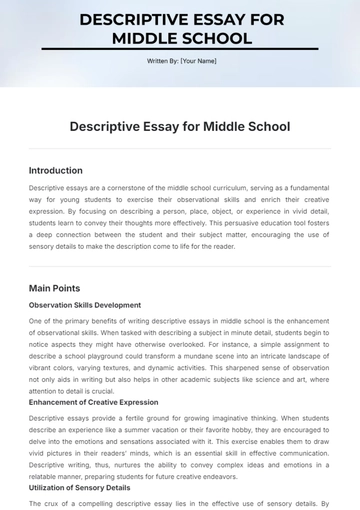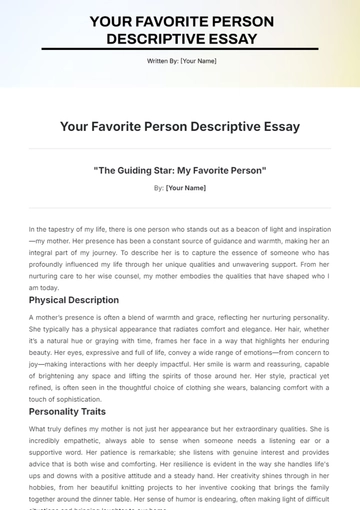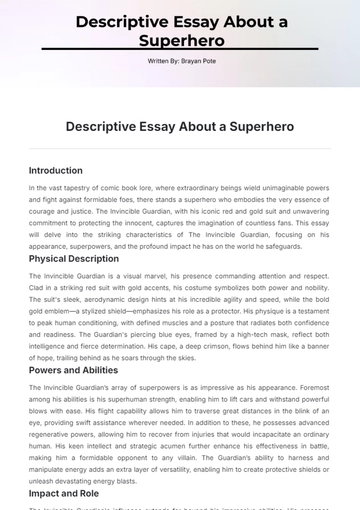Free Expository Essay on Career Readiness
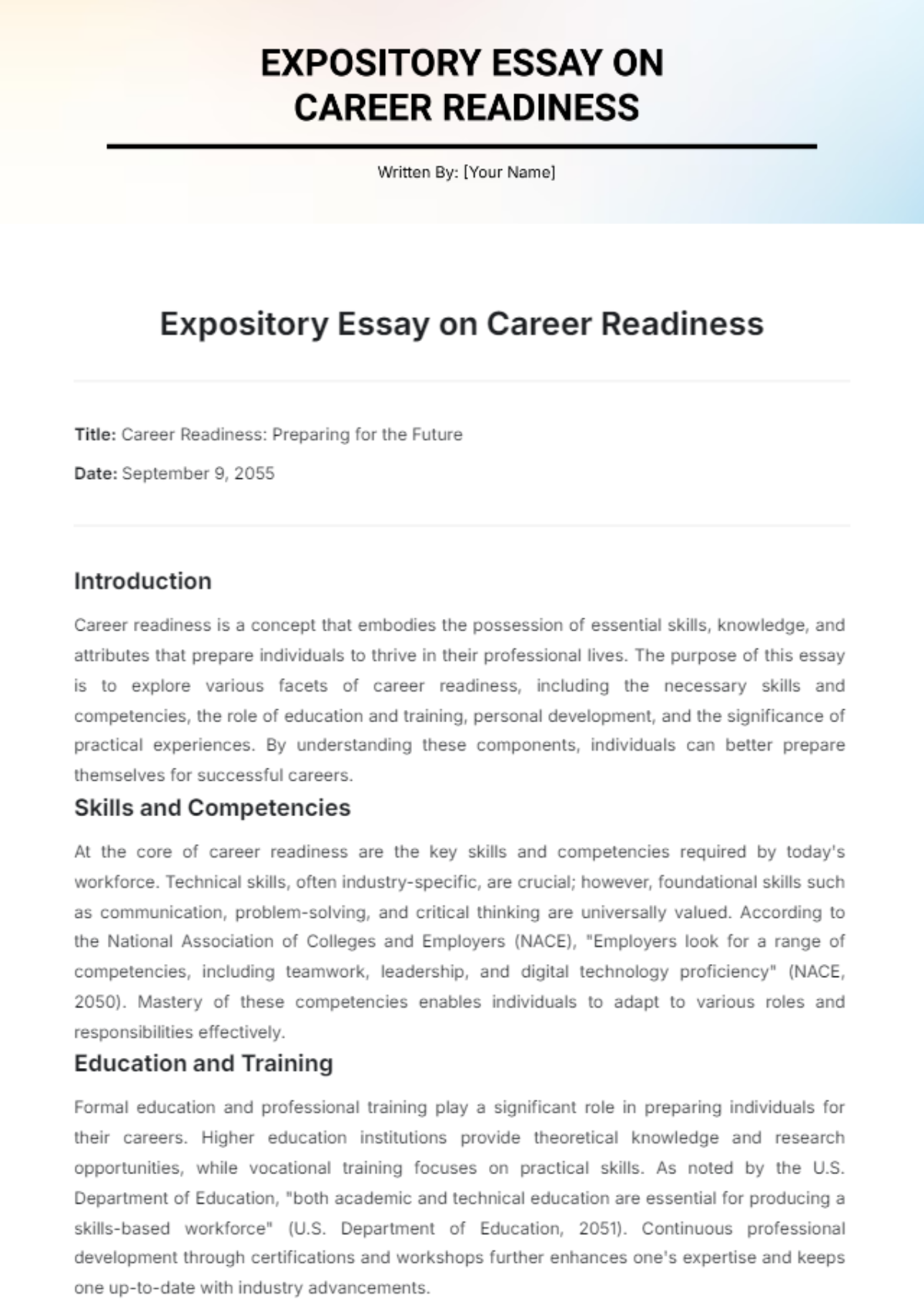
Title: Career Readiness: Preparing for the Future
Date: September 9, 2055
Introduction
Career readiness is a concept that embodies the possession of essential skills, knowledge, and attributes that prepare individuals to thrive in their professional lives. The purpose of this essay is to explore various facets of career readiness, including the necessary skills and competencies, the role of education and training, personal development, and the significance of practical experiences. By understanding these components, individuals can better prepare themselves for successful careers.
Skills and Competencies
At the core of career readiness are the key skills and competencies required by today's workforce. Technical skills, often industry-specific, are crucial; however, foundational skills such as communication, problem-solving, and critical thinking are universally valued. According to the National Association of Colleges and Employers (NACE), "Employers look for a range of competencies, including teamwork, leadership, and digital technology proficiency" (NACE, 2050). Mastery of these competencies enables individuals to adapt to various roles and responsibilities effectively.
Education and Training
Formal education and professional training play a significant role in preparing individuals for their careers. Higher education institutions provide theoretical knowledge and research opportunities, while vocational training focuses on practical skills. As noted by the U.S. Department of Education, "both academic and technical education are essential for producing a skills-based workforce" (U.S. Department of Education, 2051). Continuous professional development through certifications and workshops further enhances one's expertise and keeps one up-to-date with industry advancements.
Personal Development
Beyond technical abilities, personal qualities and soft skills are vital for career success. Traits such as resilience, adaptability, and emotional intelligence contribute to an individual's ability to navigate workplace challenges. The Centre for Creative Leadership emphasizes that "effective leaders demonstrate empathy, self-awareness, and the ability to manage stress and conflict" (Centre for Creative Leadership, 2052). Honing these personal attributes is crucial for long-term career growth and satisfaction.
Practical Experience
Real-world experiences, including internships, volunteer work, and cooperative education programs, are invaluable for career readiness. These opportunities allow individuals to apply theoretical knowledge in practical settings, develop professional networks, and gain insight into industry operations. According to Internships.com, "Students with internship experience are more likely to secure job offers upon graduation" (Internships.com, 2053). Practical experiences bridge the gap between academic learning and professional demands, providing a solid foundation for a successful career.
Conclusion
In summary, career readiness encompasses a blend of essential skills and competencies, formal education and professional training, personal development, and practical experiences. By focusing on these areas, individuals can better prepare themselves to meet the expectations of employers and thrive in their chosen fields. Being career-ready not only enhances employability but also fosters continuous growth and adaptability in an ever-evolving job market.
Bibliography
Centre for Creative Leadership. (2052). Effective Leadership Development: A Guide(2053). Internship Experience and Job Outcomes.
National Association of Colleges and Employers (NACE). (2050). Career Readiness Competencies.
U.S. Department of Education. (2051). The Role of Education in Career Development.
- 100% Customizable, free editor
- Access 1 Million+ Templates, photo’s & graphics
- Download or share as a template
- Click and replace photos, graphics, text, backgrounds
- Resize, crop, AI write & more
- Access advanced editor
Prepare thoughtful essays on the importance of job readiness with Template.net’s Expository Essay on Career Readiness Template. This editable and customizable template offers a structured guide to writing about career preparation programs. Editable in our AI Editor Tool, you can easily tailor the content to fit your academic or professional needs. Ideal for students, educators, or career counselors
